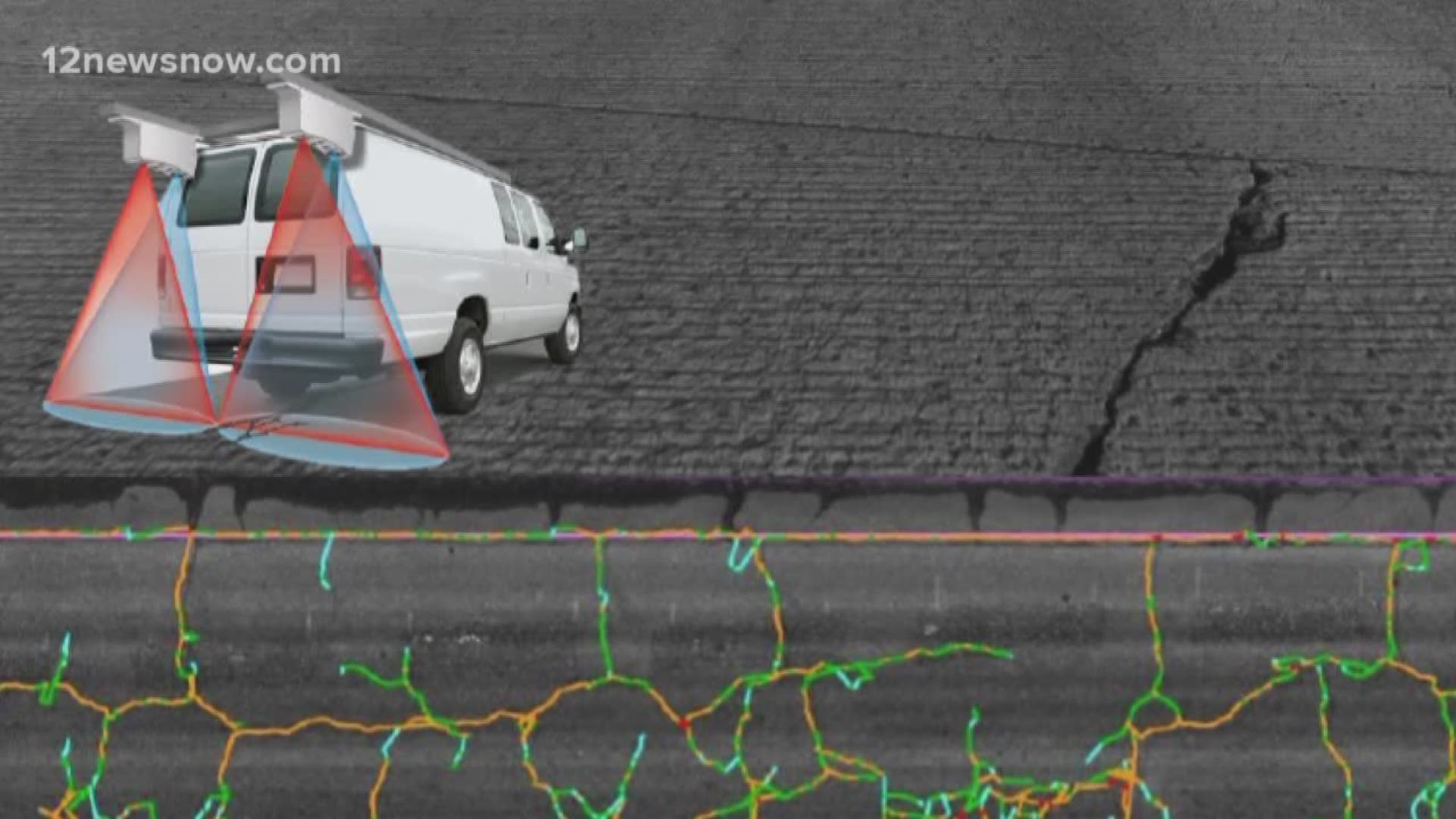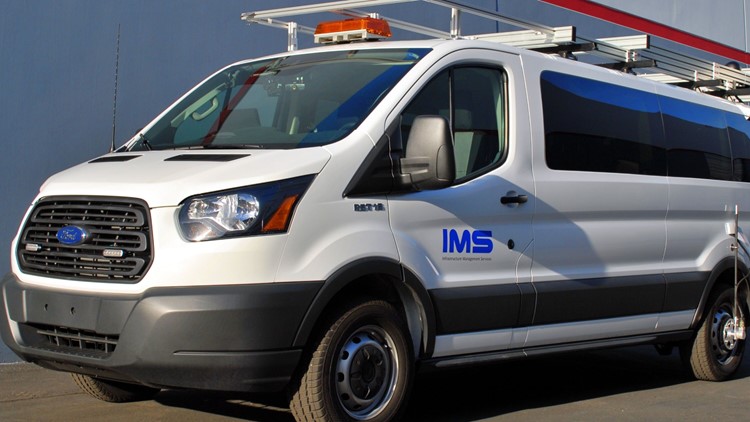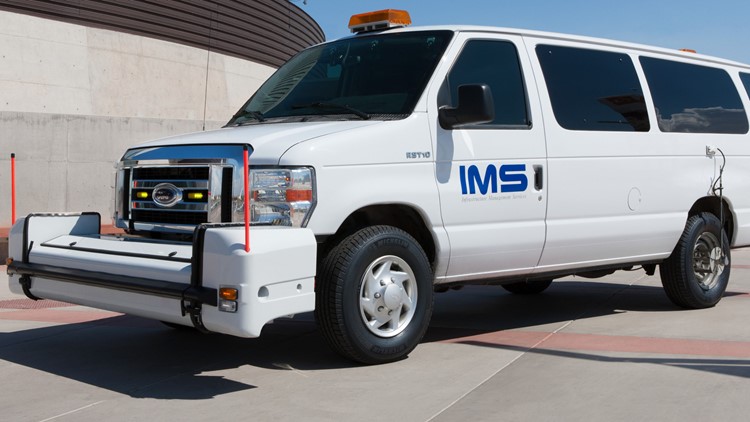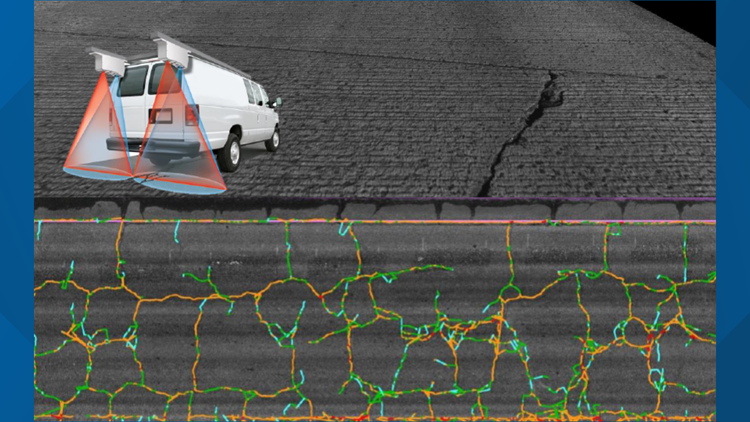PORT ARTHUR, Texas — If you're driving through Port Arthur you could soon see a 'laser van' on city streets.
That's how the Infrastructure Management Services describes their large white vans that uses lasers to collect data about road issues.
Port Arthur recently signed a contract with IMS to use the vehicles to analyze city streets.
The idea is for the vans to essentially x-ray streets with lasers to identify problems not visible to the naked eye. Data collected will help city leaders prioritize road repairs and help them fix roads in more dire need first.
According to the IMS website, "The laser camera array is capable of collecting automated pavement condition data in the form of roughness to International Roughness Index (IRI) standards, wheel path rutting, transverse cracking, block cracking, alligator cracking, and texture."
'Laser van' to soon patrol Port Arthur to help in road repairs
"This will help us a lot in maintaining the streets and in the future to be able to get federal dollars for all the streets," Port Arthur Department of Public Works director Alberto Elefaño said.
Other cities in Southeast Texas, including Beaumont, have used the same technology in the past.
Port Arthur is paying IMS $98,500 for their data as part of a roadway rehabilitation plan.
In June, the Port Arthur City Council approved a $2.2 million plan to repair roads badly damaged during Hurricane Harvey.
"This year we budgeted about 17 million dollars to do streets and they came back to us and said we've used all the money they were given. So they wanted more money and more streets," Port Arthur Mayor Derrick Freeman told 12News in June.
People who live there say when driving through Port Arthur, it's easy to see potholes are an issue in the area.
"It's definitely a concern, it causes extreme damage to the cars, making you come off extra money and pay extra cost to the vehicle," Aries Mili of Port Arthur said.
City leaders say a lot of the damage was caused by Harvey in 2017, but that the impacts have lingered.
"It's so bad that the patch they patched already has come up. The hole has already become a hole again," Stefan Hoang said.









